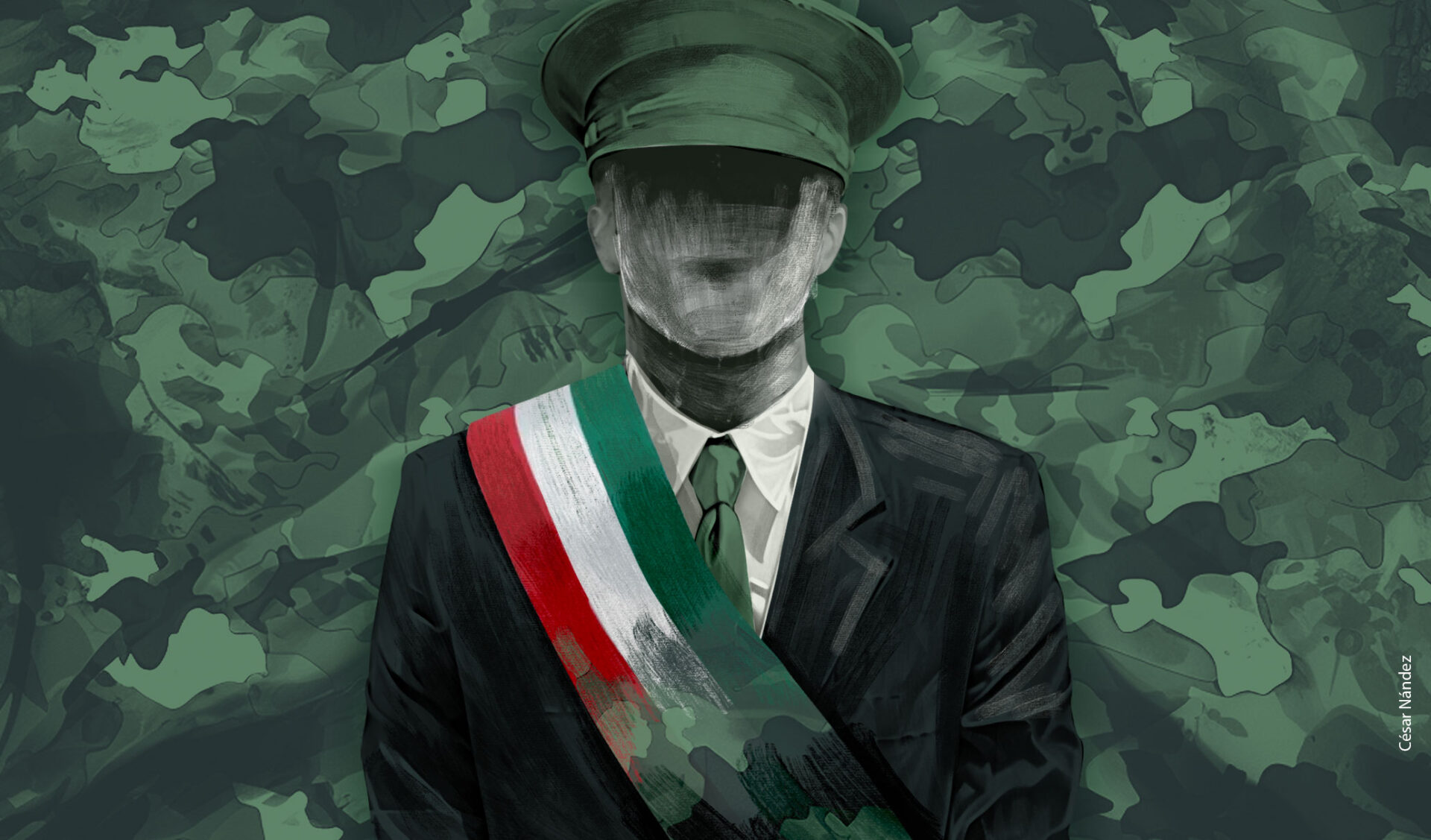Democratic erosion does not only imply the rise of populist leaders, low levels of participation in elections, and support for authoritarian figures. There is a variable that is increasingly visible in several Latin American countries, and that is the predominance of the military over civilian power.
Before getting into the subject, it is necessary to differentiate between two concepts: militarization, understood as the growth of military presence in activities that historically corresponded to civilians, and militarism, the doctrine of some nations to assert their national interest through force over natural resources or some other country. In this text, I will refer to the concept of militarization.
Historical perspective
The military in Latin American history has a sort of double face. During the 20th century, generals governed countries and promoted nationalist development programs, such as Juan Domingo Perón in Argentina, Getulio Vargas in Brazil, Jacobo Arbenz in Guatemala or Lázaro Cárdenas in Mexico. They are considered symbols of Latin American sovereignty and anti-imperialist voices in the region.
On the other hand, the armed forces have also been viewed with fear due to the coups d’état that took place in several countries such as Chile with Augusto Pinochet, Paraguay with Alfredo Stroessner, Bolivia with Juan José Torres or Peru with Francisco Morales Bermúdez. These figures have been seen as a symbol of the repression and influence of the United States in the region, together with the persecutions and repression that took place, such as Operation Condor.
However, during the third wave of democratization, according to Samuel Huntington, the armed forces were subjugated to civilian power after the transitions to democracy that took place. While they have never left the political scene and play a balancing role within the system, this has allowed most nations to maintain political stability.
Throughout the 21st century, a new generation of presidents came to power, military and guerrilla, such as Hugo Chavez in Venezuela (1999-2012), Daniel Ortega (2006-present) in Nicaragua, and the dictatorship of the Castro brothers in Cuba (1959-2019). In these cases, the executives came from the armed struggle. Therefore, the military identified with their projects, and the armies were politicized and put aside their impartiality to adhere to a specific political project.
A contemporary phenomenon
Recently, though, there has been a new phenomenon of civilian presidents giving greater functions to the armed forces. For example, in Central America, Honduran President Xiomara Castro has militarized Public Security in an attempt to replicate El Salvador’s iron fist approach against gangs and thus reduce high crime rates. This specific case is paradigmatic as it is a leftist government, which tends to bet on the strengthening of non-military bodies.
To the west, in El Salvador, President Nayib Bukele has not only militarized security, but the armed forces have been used to exert pressure on the opposition, for example, when it refused to approve his plan to combat crime. This is an unprecedented case because, in the historical annals, it is the military that pressures the president in office to leave power and not the executive in office that pressures the congresspersons.
The relevance that the military has gained in the Central American country shows that there is an exponential growth of the power of the armed forces not only in functions, but also in human rights violations, and an increase in economic matters for them to fulfill their functions. The armed forces have become a pillar of the Salvadoran punitive regime in which Bukele maintains control.
Further south, in Ecuador, President Daniel Noboa is facing an insecurity crisis accompanied by terrorist acts after criminals assaulted television stations and universities and murdered prison staff. The president decided to decree a state of emergency and to put the military in charge of security to deal with the situation.
As we can see in these cases, the armed forces have been used to confront the wave of violence that plagues nations. However, the growing presence of the military in public security may generate greater problems for civilian power when considering that the history of Central and South America is marked by the presence of the military in various spheres of public life.
The Use of the Armed Forces in Mexico
Finally, the Mexican case is worrisome because the country’s political history is based on the depoliticization of the military since 1945, when the armed forces were excluded from the then-state party, the Institutional Revolutionary Party. The military has been a balance in the political system. Although during the era of the hegemonic party (1929-1997) they were used as a security corps to quell workers, students, or union demonstrations, they never broke with the constitutional order.
During the transition and the era of divided governments (1997-2018) the army had not been given any functions other than military ones, and since 2006 they have been in charge of supporting public security tasks. As of 2018, the government of President Andrés Manuel López Obrador has given them substantial powers.
The army is responsible for customs surveillance and migrant detention at the border, they build works such as airports, refineries, and trains. They also delivered vaccines against the COVID-19 pandemic, distributed textbooks, and managed infrastructure projects. Now under López Obrador’s administration, the armed forces have taken on a more relevant role, which generates a concern: will anyone be able to take power away from them, and will they be willing to cede it?
The region is going through times of discomfort with democracy, but also the growing militarization is a warning for all countries. Giving power to the military is to ignore the political history of the region. However, it can also be read as an authoritarian action by some politicians who are trying to shield a specific political project. The literature in this area is usually scarce, but the political situation forces us as social scientists to analyze this new phenomenon that is developing in several nations.
*Translated by Micaela Machado Rodrigues from the original in Spanish.











